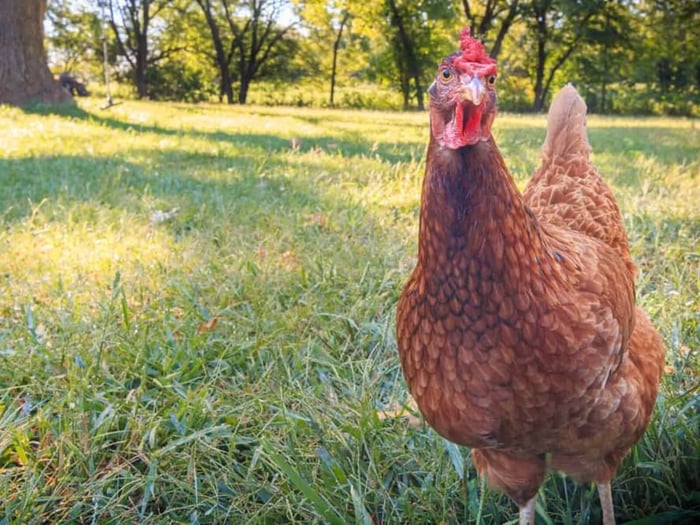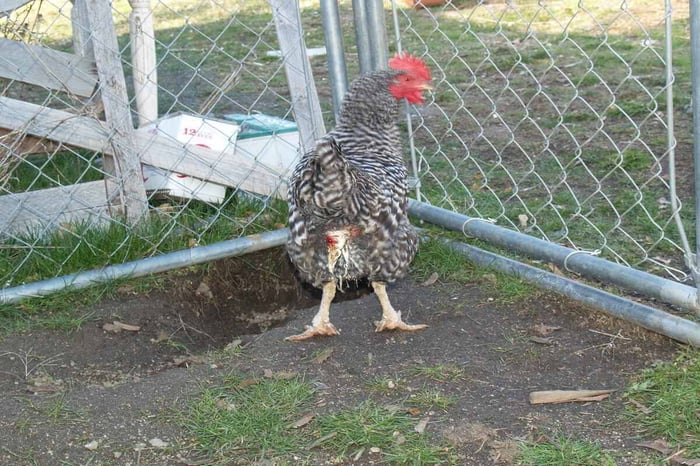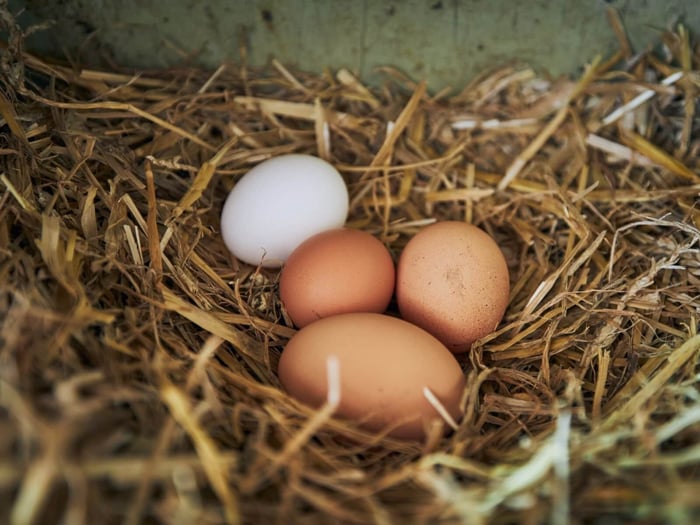Table of Contents
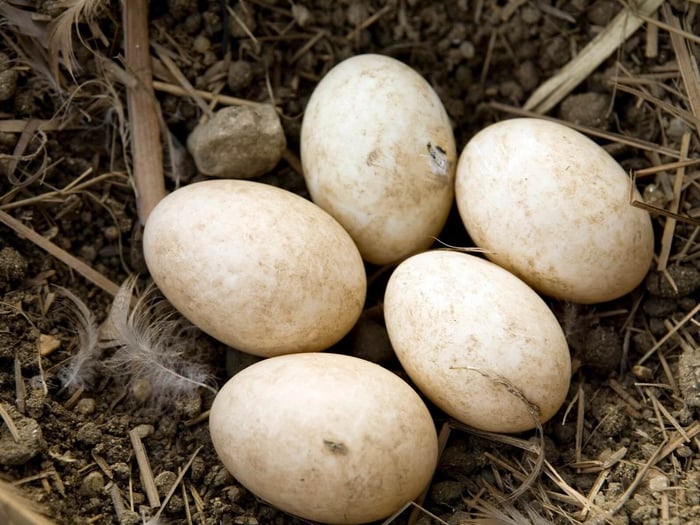 Duck Eggs vs Chicken Eggs : What’s the Difference?
Duck Eggs vs Chicken Eggs : What’s the Difference?
For anyone raising a flock—or simply curious about the food on their plate—the debate of duck eggs vs chicken eggs often sparks interest. While both are delicious and nutritious, they’re not quite the same. From their taste and size to their nutritional value and baking qualities, there are several key differences that can help you decide which eggs are best for your family, recipes, and backyard setup.
In this guide, we’ll explore all the ways duck eggs vs chicken eggs differ, why you might want to raise ducks alongside or instead of chickens, and how these unique eggs can fit into your kitchen and homestead.
Size and Appearance
The most obvious difference between duck eggs vs chicken eggs is size. Duck eggs are generally about 50% larger than standard chicken eggs. A typical duck egg weighs around 70–100 grams, compared to an average chicken egg at 50–60 grams. This size difference makes duck eggs more filling and often preferred by those looking for a protein-packed breakfast or rich, hearty baking ingredient.
Duck eggs also have thicker shells and a stronger membrane. This means they last longer when stored correctly, often staying fresh for up to six weeks in the fridge. Their shells come in a wider variety of colors, from white and cream to light blue and green, depending on the breed.
Another key difference is the bloom—the natural coating on an egg that protects it from bacteria. While all eggs have a bloom, duck eggs typically have a heavier coating since ducks spend time in water and wet conditions. This thicker bloom makes duck eggs even more resistant to bacteria and spoilage, adding to their longer shelf life when stored unwashed.
Taste and Texture
When comparing duck eggs vs chicken eggs, taste is a big factor for most people. Duck eggs tend to have a richer, creamier flavor thanks to their higher fat content and larger yolks. Some describe them as slightly more “gamey,” while others simply notice a buttery richness that makes them stand out.
Chicken eggs, on the other hand, have a lighter flavor and are what most of us are accustomed to. If you’re new to duck eggs, the difference can take a little getting used to, but many food enthusiasts find duck eggs superior, especially in baked goods.
Nutritional Differences
Another reason to consider the duck eggs vs chicken eggs debate is nutrition. Duck eggs pack more of nearly everything, from protein to vitamins. On average, one duck egg contains:
Around 9 grams of protein (compared to about 6 grams in a chicken egg)
More omega-3 fatty acids, which are excellent for brain and heart health
Higher levels of vitamin B12, iron, and selenium
A richer concentration of fat, which contributes to their dense texture and flavor
For people who need more calories and nutrients—such as athletes, pregnant women, or those on a high-protein diet—duck eggs can be a great choice. However, they’re also higher in cholesterol, so moderation is key if that’s a concern.
Who Lays More?
When it comes to production, chickens generally outlay ducks in most backyard setups. A good laying chicken breed, like a Leghorn or Rhode Island Red, can produce up to 280–320 eggs per year, while most duck breeds average closer to 180–250 eggs annually.
However, many ducks, especially hardy breeds like Khaki Campbells, tend to lay consistently even during colder months when many chickens slow down or stop altogether. While chickens may produce a higher overall count, ducks can provide steadier egg availability year-round, especially in challenging weather conditions.
Baking and Cooking Benefits
If you love to bake, the duck eggs vs chicken eggs debate might already be decided for you. Duck eggs are prized by professional and home bakers because their higher fat and protein content creates fluffier cakes, richer pastries, and sturdier baked goods.
Their larger yolks add moisture, while their whites, which are higher in albumen, provide more structure. This means cookies rise beautifully, meringues hold their shape better, and custards have an extra-smooth finish. For recipes that call for one chicken egg, you may need to adjust measurements when substituting a duck egg—typically using one duck egg for every one and a half chicken eggs.
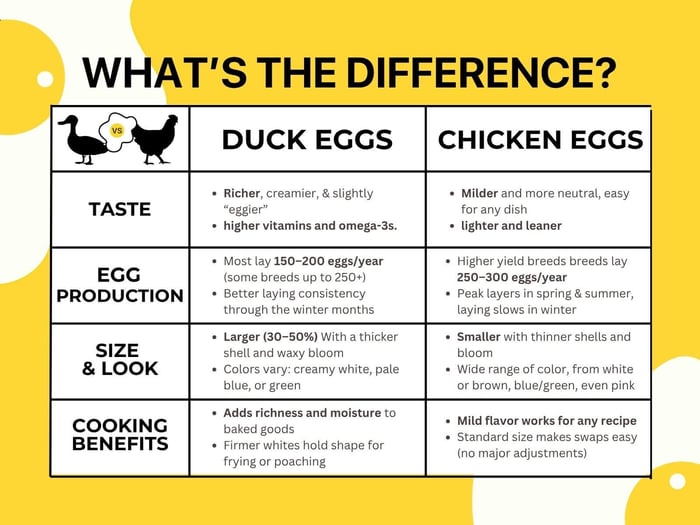
Raising Ducks vs Chickens: Or Maybe Both?
If you’re deciding between ducks and chickens for your backyard flock, it’s worth considering how duck eggs vs chicken eggs fit into your lifestyle—and whether keeping both might be the perfect solution. Ducks are generally hardier in wet or cold climates, often laying reliably year-round. While many chicken breeds slow their egg production during winter, ducks like Khaki Campbells and Welsh Harlequins often keep laying steadily, making them a dependable choice for cold-weather egg collection.
That said, ducks do require a little more care. They need regular access to water, tend to be messier than chickens, and often benefit from specialized housing or larger runs to support their habits. Chickens, by comparison, are typically easier for beginners, needing less maintenance and thriving in more traditional backyard setups.
If your priority is eggs, a familiar-tasting egg with slightly lower fat and cholesterol, chickens are the go-to option. But if you want a nutrient-dense egg with a rich flavor and unbeatable baking qualities, ducks bring a lot to the table.
For many homesteaders and suburban families taking steps toward self-sufficiency (or maybe just really want to have ducklings), raising both chickens and ducks offers the best of both worlds. You’ll enjoy two distinct egg types, a variety of personalities in your flock, and a steady stream of fresh food for your table—no matter the season. Plus, you will always be entertained!

FAQs
Are duck eggs healthier than chicken eggs?
Duck eggs are more nutrient-dense, offering more protein, omega-3s, and vitamins than chicken eggs, though they also contain more cholesterol and fat.
Do duck eggs taste different from chicken eggs?
Yes. Duck eggs have a richer, creamier flavor and slightly thicker texture due to their larger yolks and higher fat content.
Can you use duck eggs in place of chicken eggs for baking?
Absolutely. Duck eggs are excellent for baking due to their higher fat and protein, creating fluffier, richer baked goods. You may need to adjust measurements for recipes.
How long do duck eggs last compared to chicken eggs?
Duck eggs last longer because of their thicker shells, often staying fresh for up to six weeks in the fridge when stored properly.
Who lays more eggs each year, ducks or chickens?
Chickens typically lay more eggs annually, with top breeds producing 280–320 eggs per year. Ducks average around 180–250 eggs, but many duck breeds lay more consistently through cold or wet weather when chickens slow down.


.png)
